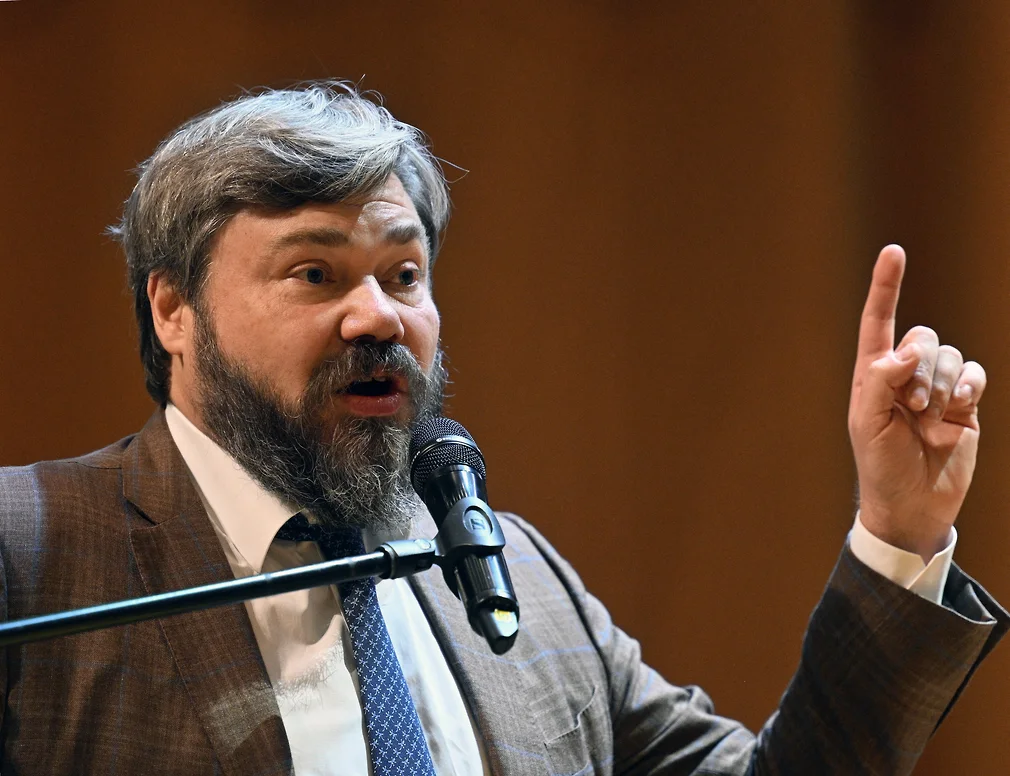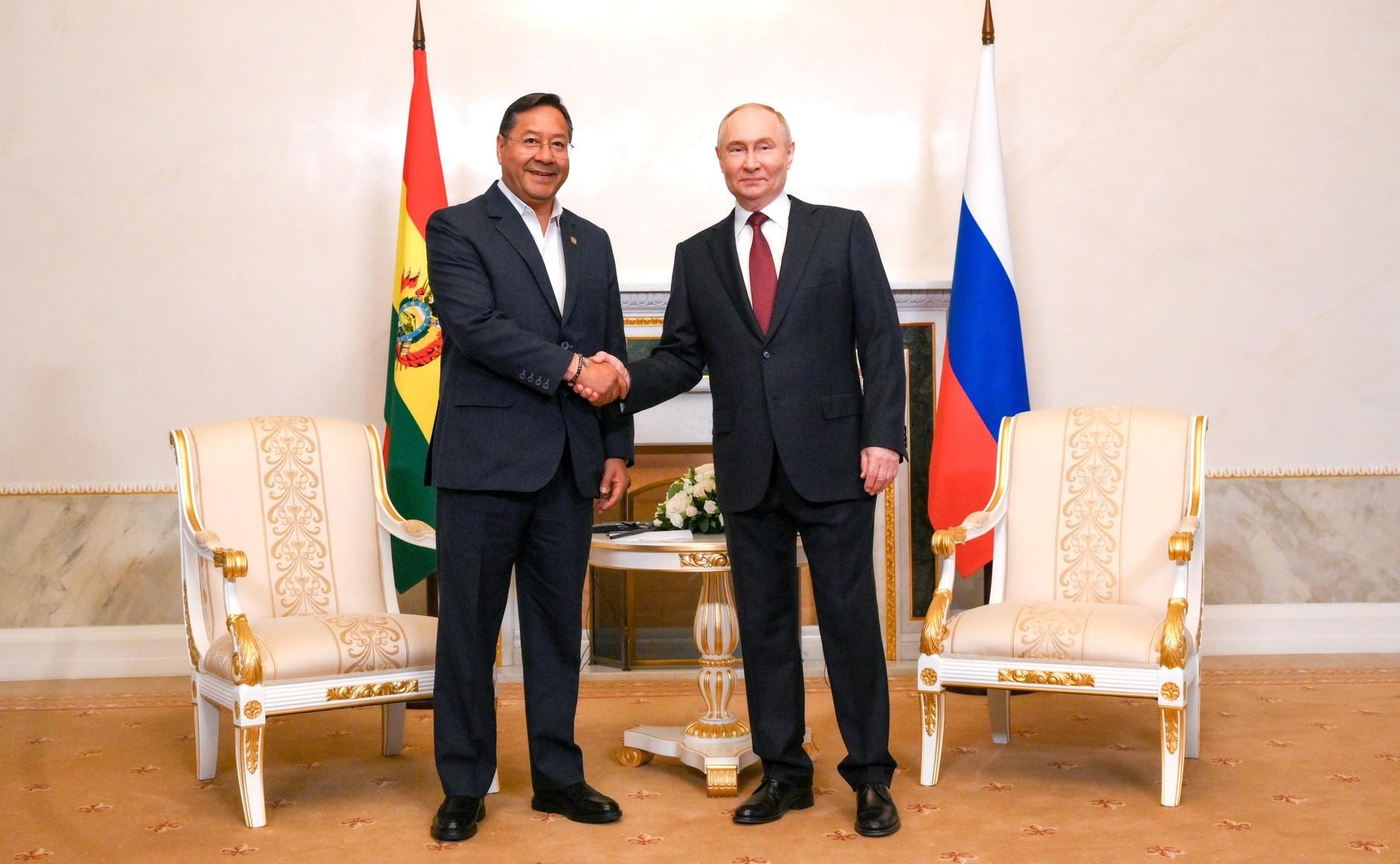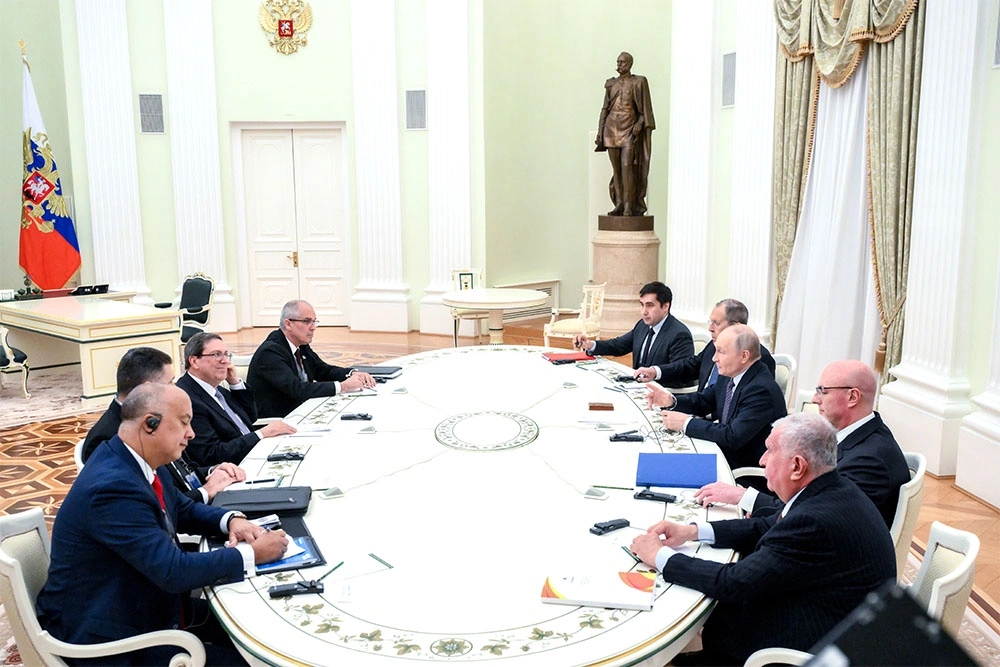PROSECUTORS DETAIN EXECUTIVES OF GAZPROM AFFILIATE.
PROSECUTORS DETAIN EXECUTIVES OF GAZPROM AFFILIATE.
The Russian authorities’ took another step against the country’s largest financial-industrial fiefdoms yesterday, when prosecutors detained three officials of Sibur, the giant petrochemical company that is 51-percent owned by Gazprom, Russia’s natural gas monopoly. Sibur CEO Yakov Goldovsky and board chairman Vyacheslav Sheremet were being held on charges of abuse of power. A third Sibur executive, vice president Yevgeny Kozhits, was detained on unspecified charges. The arrests followed the Prosecutor General’s Office’s decision on January 7 to launch a criminal investigation into Sibur. The following day, prosecutors searched the company’s Moscow offices.
The authorities began focusing on Sibur last year, after Aleksei Miller, a close associate of President Vladimir Putin, replaced Rem Vyakhirev as Gazprom’s CEO. That change at the top sparked wide speculation that the Kremlin would clean house at the 38-percent state-owned gas monopoly, whose old management was accused of stripping the company’s assets through a host of subsidiaries. Gazprom’s new management began an inventory of its assets and found that Sibur, which owns Russia’s main gas-processing plants, no longer owned many of the enterprises putatively under its control, a fact that raised Putin’s ire. Specifically, Gazprom discovered that 2.6 billion rubles (US$86 million) worth of assets belonging to Gazprom subsidiaries, above all Sibur, had been illegally sold off. According to material that Gazprom’s security service handed over to the Prosecutor General’s Office, Sibur’s management had failed to pay back hundreds of millions of dollars in loans that Gazprom had either granted directly or guaranteed … despite the twin facts that Sibur had sold off several of its major enterprises, including the Surgut Gas Processing Plant, and that its revenues had risen to US$1.5 billion annually.
Sheremet, Sibur’s board chairman, was Vyakhirev’s Number Two at Gazprom and remains a top Gazprom manager. Vyakhirev was also questioned yesterday in connection with the Sibur investigation, and Prosecutor General Vladimir Ustinov told the Interfax news agency today that his office plans to question a number of current and former Gazprom officials in connection with the Sibur case. Ustinov also said that the three Sibur executives detained yesterday would be formally charged if there were sufficient evidence to do so (NTV.ru, January 10; Moscow Times, January 10; Gazeta.ru, January 9).
The raids on Sibur and subsequent arrests of its executives occurred just prior to a planned extraordinary meeting of Sibur’s shareholders board, which was set to take place yesterday. The meeting had been called to elect a new board of directors and put the company in line with a new law on joint stock companies, which came into effect on January 1 and stipulates that no more than a simple majority of shareholders is necessary to remove a company’s CEO. Sibur’s charter currently stipulates that removal of its top man requires the assent of 75 percent of the company’s shareholders. This has made it more difficult for Gazprom’s new leadership to change Sibur’s management, given that the gas giant, which owns 51 percent of Sibur, has only a minority representation on Sibur’s seventeen-member board. The newspaper Kommersant reported that one faction within Gazprom’s management had hoped to reassert control over Sibur “softly,” using yesterday’s planned Sibur board meeting to reduce the number of board members to nine–four of whom would belong to Gazprom, four to Sibur, and one who would be “independent.” The arrests of Sibur’s executives, however, thwarted the meeting, given the absence of a quorum.
According to Kommersant, the law enforcement raids on Sibur’s offices and the subsequent arrests were initiated by Aleksandr Ryzanov, who was recently named deputy head of Gazprom’s board of directors and apparently leads a group of Gazprom “hardliners.” The Polit.ru website today described Ryzanov as a “personal enemy” of Sibur CEO Yakov Goldovsky and said that Ryzanov was placed inside Gazprom by the Kremlin faction that includes Igor Sechin, head of the presidential secretariat. Sechin is said to be part of the group of St. Petersburg natives and/or KGB veterans that is battling another group, made up of Yeltsin-era holdovers, for primacy inside the Kremlin. The Prosecutor General’s Office denied that the search of Sibur’s offices and detention of its officials were related to yesterday’s planned shareholders meeting. Gazprom, for its part, denied that it had initiated the search and arrests (Kommersant, January 9-10; Polit.ru, January 10; see also the Monitor, January 4; November 29, 2001).
In any case, it remains an open question whether the authorities’ actions against Sibur, which follow on the heels of Nikolai Aksenenko’s removal as railways minister, are part of an overall campaign to fight corruption and reassert control over Russia’s powerful monopolies, which have often been described as states within the state, or simply part of the ongoing power struggle between Kremlin factions (see the Monitor, January 4). It is worth noting that the authorities’ indignation at Gazprom-related financial malfeasance appears to be selective. Russian media reported last month that the state’s Vneshtorgbank had loaned 15 billion rubles (US$500 million) to Gazprom to help the gas giant pay its taxes by the end of last year. The money for the loan–which was made for a year at an interest rate lower than the rates asked by Western banks–originated with Russia’s Central Bank, which deposited US$700 million in Vneshtorgbank in early December. That Central Bank move reportedly sparked a US$1.2 billion drop in Russia’s hard-currency reserves as of December 14 (Moscow Times, December 25, 2001). Last August, Russia’s Federal Commission for the Securities Market ruled that a 1995 deal by which a company called Stroitransgaz acquired a 4.83-percent stake in Gazprom for a mere US$2.5 million violated no laws or securities regulations. The commission had been probing this and other suspicious deals between Gazprom and Stroitransgaz, among whose largest shareholders are the offspring of former top Gazprom officials, including Vyakhirev’s daughter Tat’yana and former Prime Minister Viktor Chernomyrdin’s sons, Andrei and Vitaly (see the Monitor, August 31, 2001).
Aleksei Miller’s appointment as Gazprom’s CEO last summer sparked hopes that the gas monopoly would be at a minimum made more transparent and possibly even radically restructured. Prime Minister Mikhail Kasyanov promised in July that Gazprom’s production units would be split off from its gas transportation system in order to increase “transparency and effectiveness,” and give other gas producers access to Gazprom’s pipeline system. These plans won wide applause in the West. Miller, however, soon began backtracking and told the magazine Ogenyok last month that Gazprom would not be broken up any time soon. Among the reasons he cited was that the company was US$7 billion in debt and that such a move would require the approval of 75 percent of the company’s board (Moscow Times, December 5, 2001; see the Monitor, September 6, 2001).
PEACEKEEPING FARCE IN ABKHAZIA: HOW MUCH LONGER?


